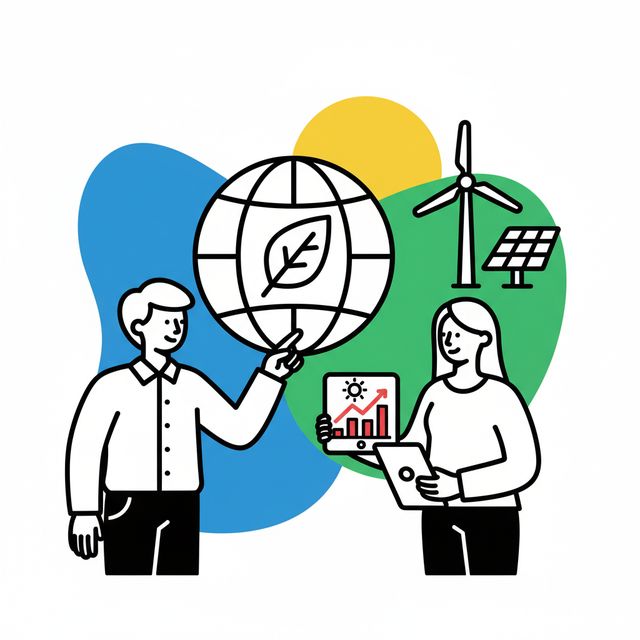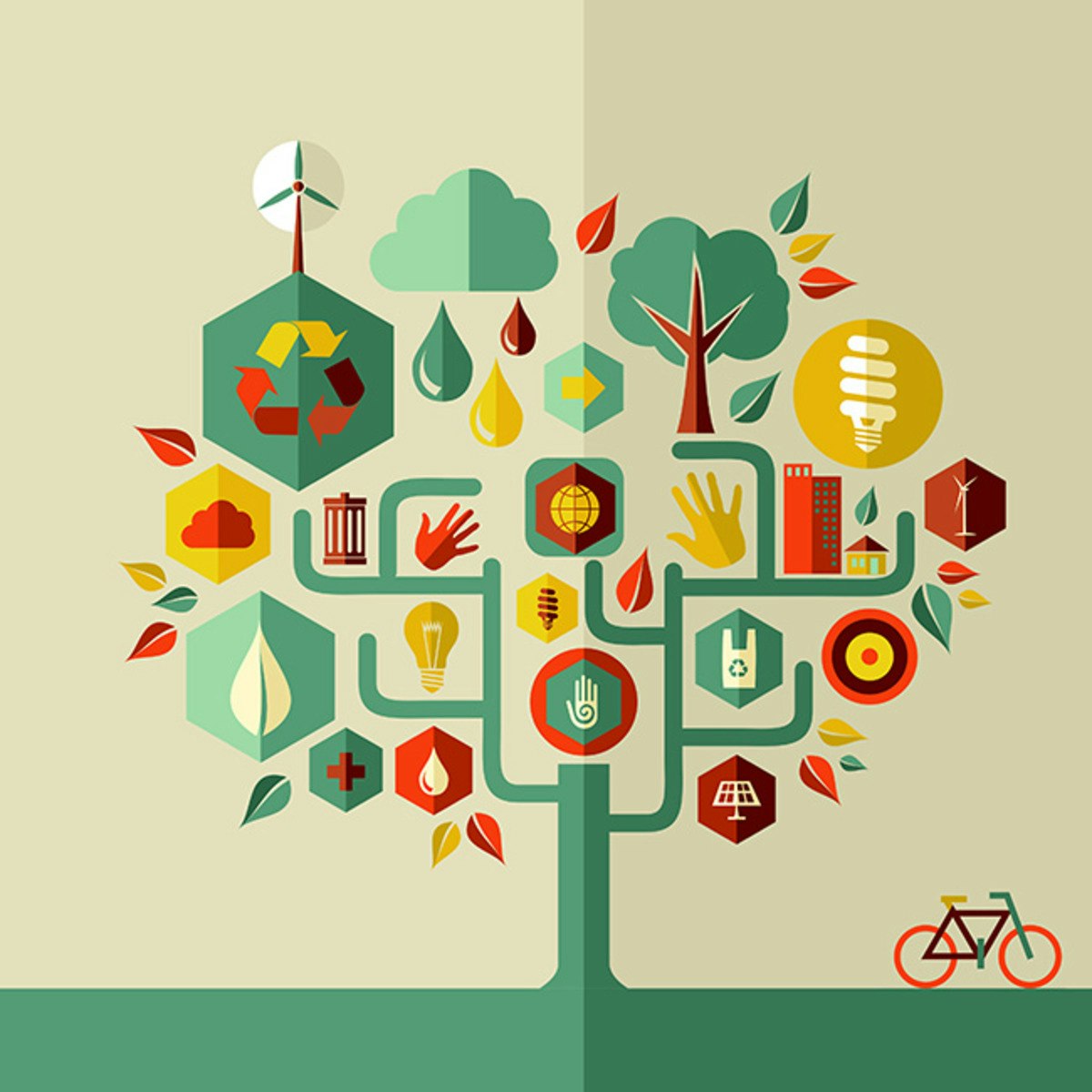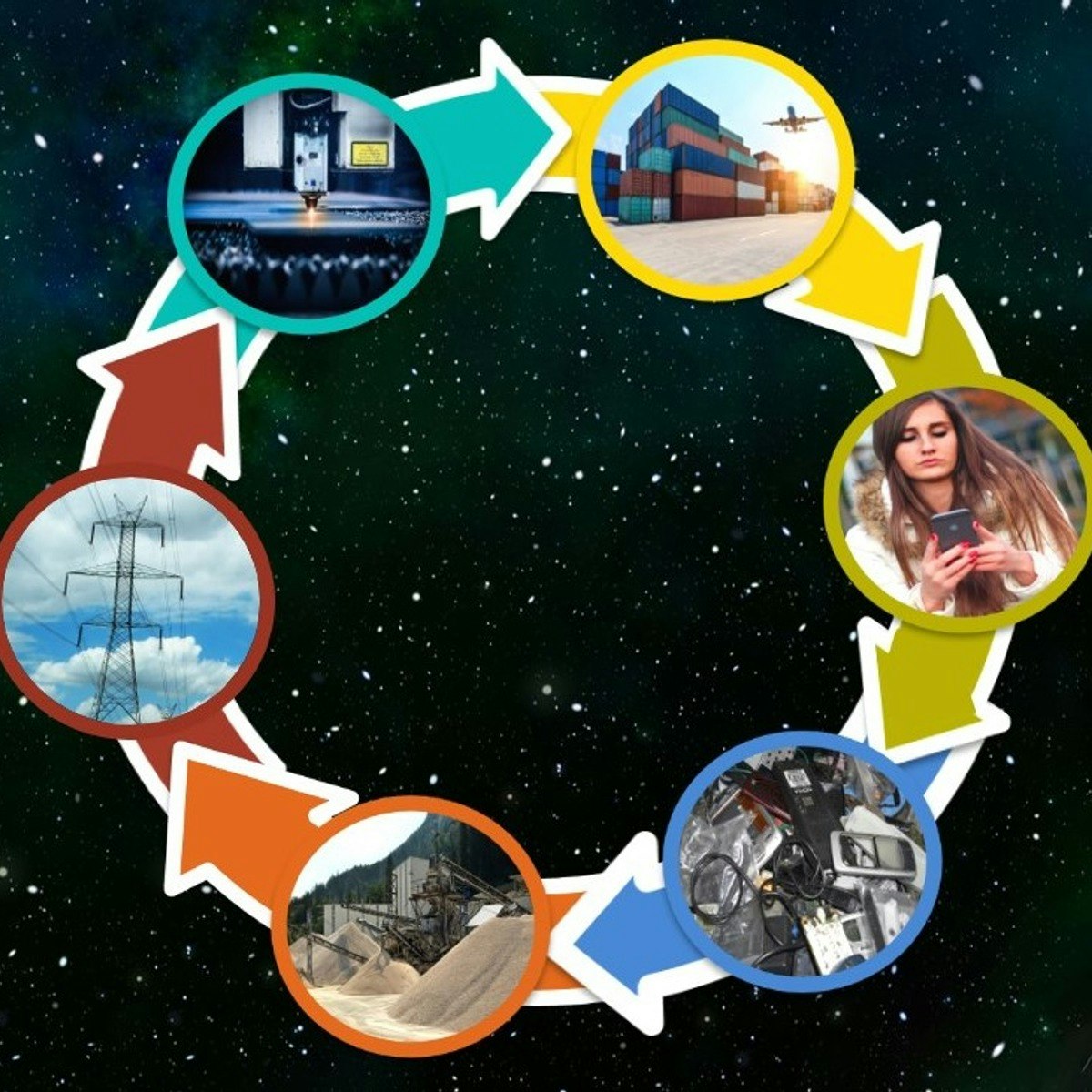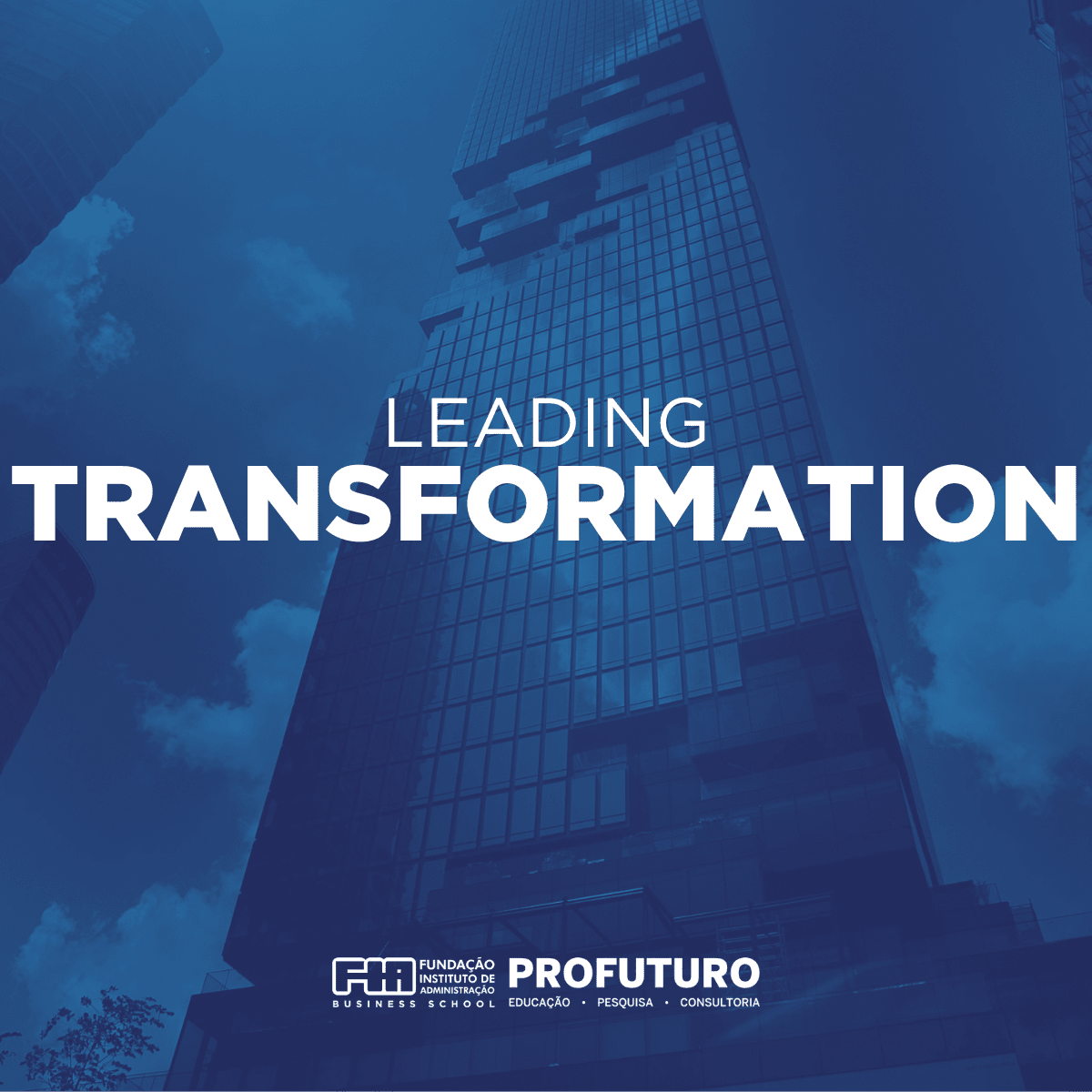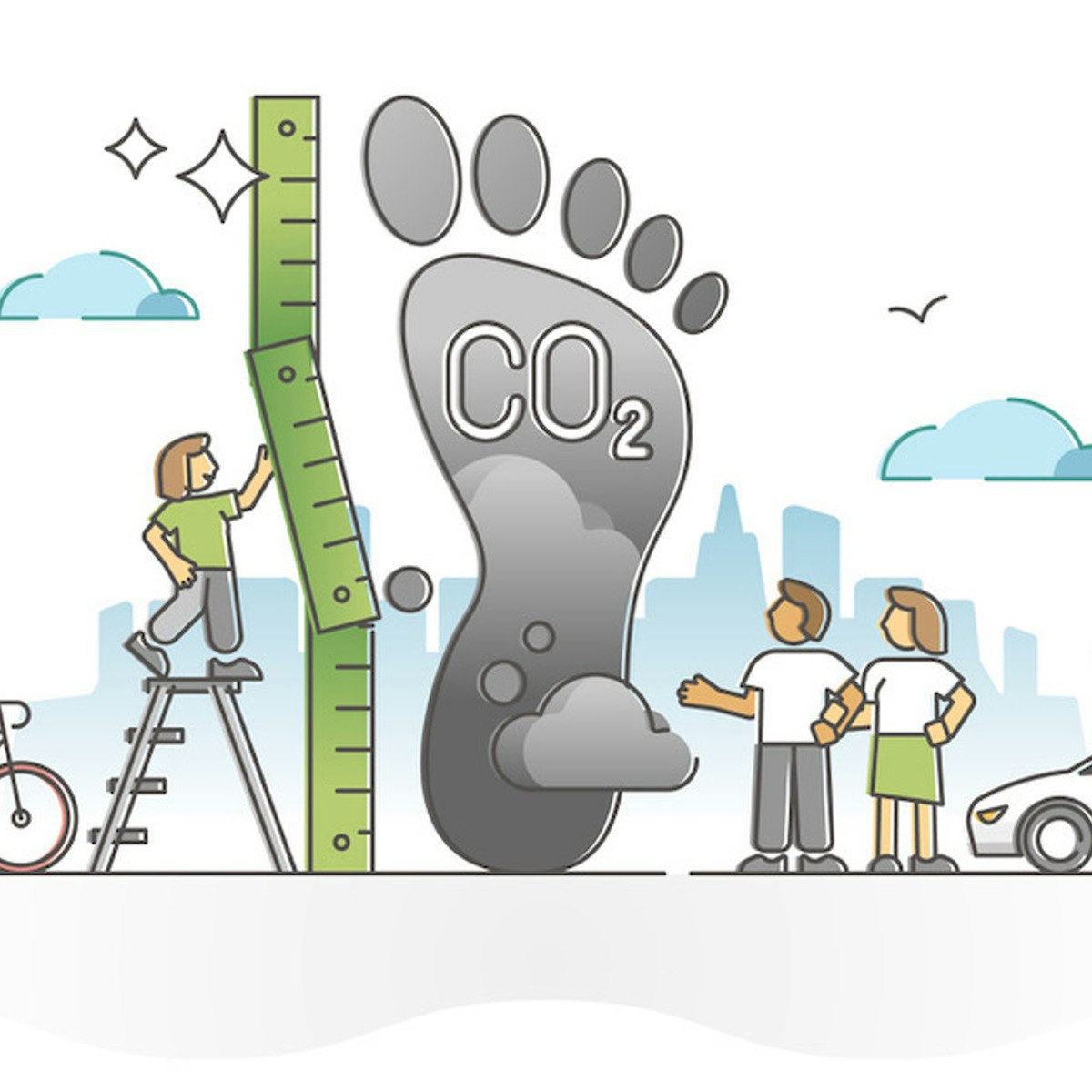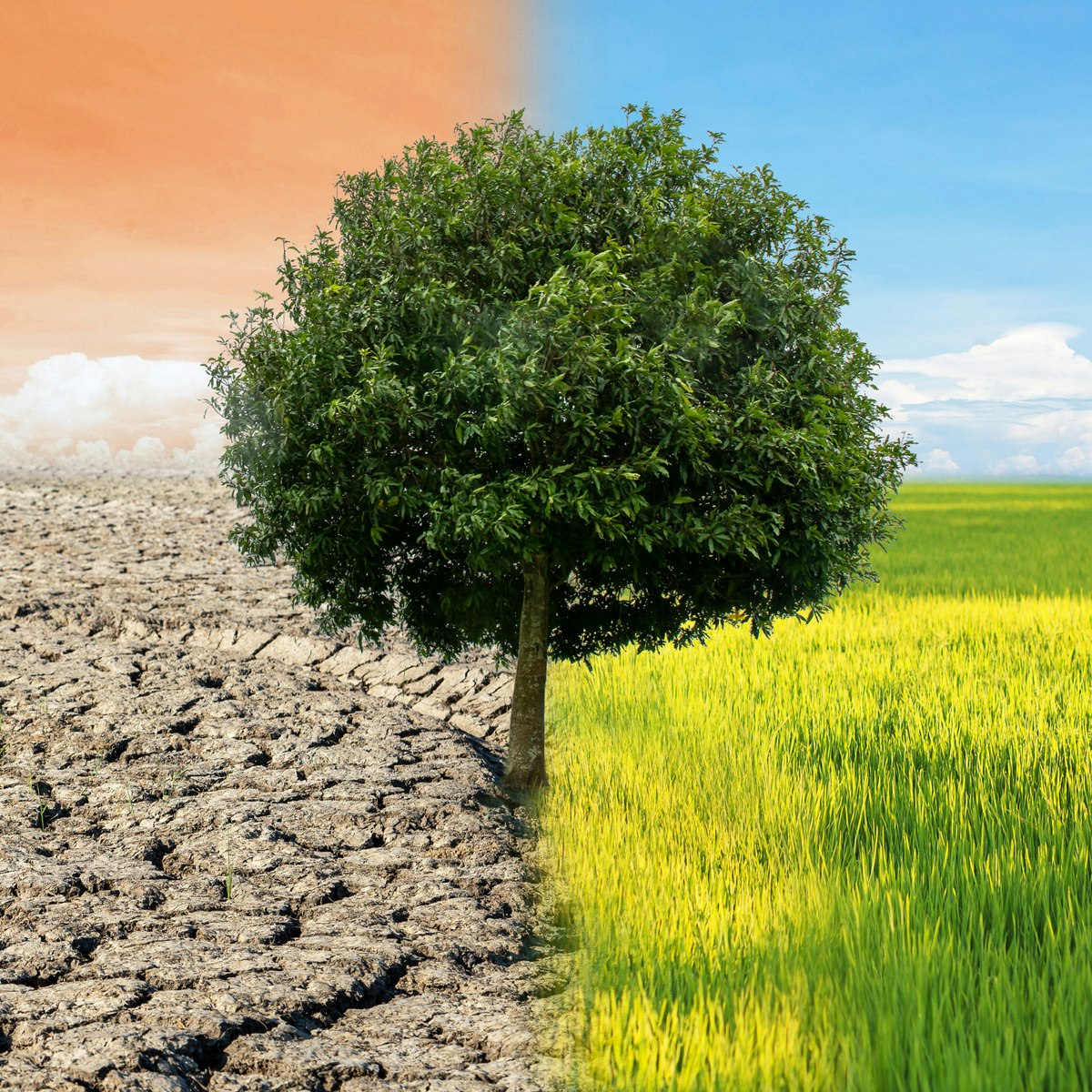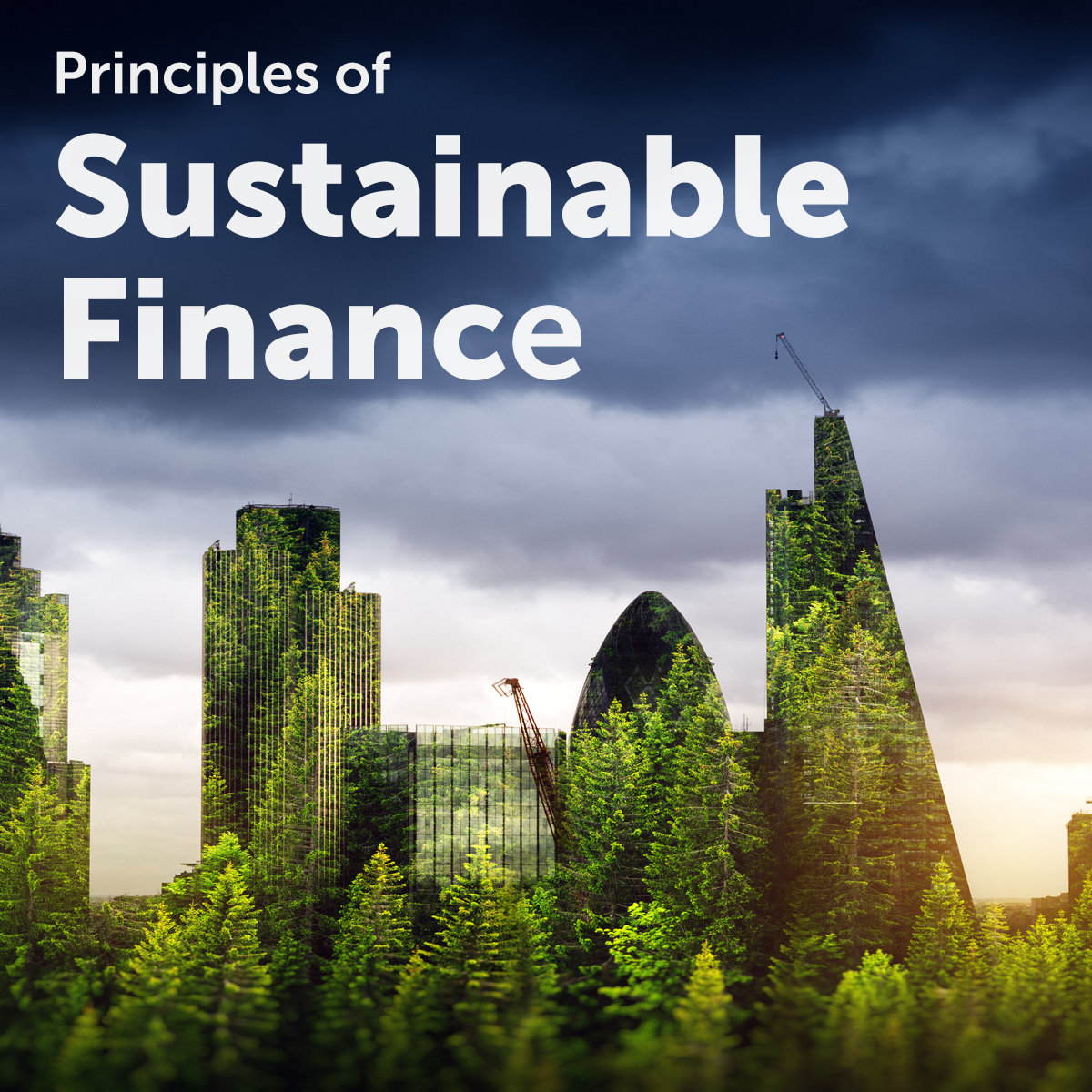Sustainability Manager
Sustainability Manager
A Sustainability Manager is a professional dedicated to developing, implementing, and overseeing strategies that help organizations operate in an environmentally and socially responsible manner. They work to minimize negative impacts while often seeking ways to enhance positive contributions to society and the environment. This role sits at the intersection of business operations, environmental science, social responsibility, and regulatory compliance, requiring a unique blend of skills.
Working as a Sustainability Manager can be deeply rewarding. You'll often find yourself tackling complex global challenges, like climate change and resource scarcity, at an organizational level. The role provides opportunities to drive meaningful change, influence corporate strategy, and contribute to a more sustainable future. Engaging with diverse stakeholders, from executives to community members, and seeing tangible improvements in environmental performance or social outcomes can be particularly exciting aspects of the job.
Introduction to Sustainability Manager
Defining the Role and Its Scope
At its core, a Sustainability Manager champions an organization's commitment to sustainable practices. This involves integrating environmental, social, and governance (ESG) considerations into the company's core business strategy and operations. Their scope is broad, potentially touching every department, from supply chain management and product design to human resources and finance.
They analyze the organization's impact, set goals for improvement (like reducing carbon emissions, minimizing waste, or improving labor practices), and develop initiatives to achieve these goals. They ensure the company adheres to environmental regulations and often lead efforts in sustainability reporting, communicating progress to internal and external stakeholders, including investors, customers, and regulatory bodies.
The role requires a holistic view, understanding how environmental stewardship, social equity, and economic viability are interconnected. Sustainability Managers act as change agents, educators, and strategists, guiding their organizations towards long-term resilience and responsible growth.
The Evolution of Sustainability Management
The concept of corporate sustainability has evolved significantly. Early environmental management focused primarily on compliance with regulations, often seen as a cost center. Concerns about pollution and resource depletion in the latter half of the 20th century prompted some companies to adopt more proactive environmental policies.
The publication of landmark reports like "Our Common Future" (the Brundtland Report) in 1987 and the rise of frameworks like Corporate Social Responsibility (CSR) broadened the focus beyond just environmental issues to include social concerns. Initially, CSR was often handled by communications or philanthropy departments, focusing on reputation management and community relations.
More recently, the understanding of sustainability has matured into the ESG framework, emphasizing the integration of these factors into core business strategy and risk management. Driven by investor pressure, regulatory developments, and growing public awareness, sustainability is increasingly seen as critical for long-term value creation, resilience, and competitive advantage. This shift has elevated the role of the Sustainability Manager from a niche function to a strategic imperative in many organizations.
Key Industries and Employment Sectors
Sustainability Managers are found across a wide array of industries, reflecting the universal relevance of sustainability principles. Manufacturing companies employ them to optimize resource use, manage waste streams, and ensure supply chain responsibility. The energy sector relies on them to navigate the transition to renewables and manage environmental impacts.
Technology companies hire sustainability professionals to address e-waste, data center energy consumption, and ethical sourcing of materials. The finance industry increasingly employs sustainability experts to integrate ESG factors into investment analysis and risk management, leading to roles in sustainable finance.
Other significant sectors include agriculture, construction, retail, transportation, and consulting. Public sector organizations, non-profits, and educational institutions also employ Sustainability Managers to guide their own operations and initiatives. The specific focus areas may vary by industry, but the core goal of integrating sustainability remains consistent.
Global Relevance and Demand Trends
The demand for Sustainability Managers is growing globally. Increased awareness of climate change, resource depletion, and social inequality fuels this trend. International agreements like the Paris Agreement and the UN Sustainable Development Goals (SDGs) create frameworks that encourage governments and corporations to act.
Investor interest in ESG performance is a major driver. Financial institutions increasingly recognize that sustainability factors can significantly impact a company's long-term financial health and risk profile. Regulatory landscapes are also evolving, with more jurisdictions mandating climate-related disclosures and environmental standards, requiring skilled professionals to ensure compliance.
According to various market analyses and reports from consulting firms like McKinsey and government bodies such as the U.S. Bureau of Labor Statistics (which tracks related roles like Environmental Scientists and Specialists), careers focused on environmental protection and sustainability show strong growth prospects. This reflects a broader economic shift towards valuing sustainability alongside profitability.
Core Responsibilities of a Sustainability Manager
Developing and Implementing Sustainability Strategies
A primary responsibility is crafting a comprehensive sustainability strategy aligned with the organization's mission and business objectives. This involves assessing the company's current environmental and social footprint, identifying material issues (areas of significant impact and stakeholder concern), and setting measurable targets for improvement.
Implementation requires translating strategy into actionable plans. This might involve launching energy efficiency programs, developing sustainable procurement policies, redesigning products for circularity, or initiating community engagement projects. The manager ensures resources are allocated effectively and tracks progress towards goals.
This process often involves collaborating across departments to integrate sustainability into various functions. They must build a compelling business case for sustainability initiatives, demonstrating how they contribute to cost savings, risk mitigation, brand reputation, and long-term value creation.
These courses provide insights into formulating and executing sustainability strategies within organizations.
Monitoring Regulatory Compliance and Reporting
Sustainability Managers must stay abreast of evolving environmental and social regulations at local, national, and international levels. They ensure the organization complies with laws related to emissions, waste disposal, water usage, labor standards, and other relevant areas.
A significant part of the role involves overseeing sustainability reporting. This includes collecting, verifying, and analyzing ESG data across the organization. They often use established frameworks like the Global Reporting Initiative (GRI), Sustainability Accounting Standards Board (SASB), or the Task Force on Climate-related Financial Disclosures (TCFD) to structure these reports.
These reports communicate the organization's ESG performance to stakeholders, including investors, regulators, customers, and employees. Accuracy, transparency, and consistency in reporting are crucial for building trust and credibility. The manager ensures that data collection processes are robust and that reports meet the requirements of relevant standards and regulations.
Stakeholder Engagement and Collaboration
Sustainability initiatives rarely succeed in isolation. Sustainability Managers must effectively engage a wide range of stakeholders, both internal and external. Internally, this means collaborating with departments like operations, supply chain, R&D, marketing, finance, and HR to embed sustainability practices.
They often lead cross-functional teams or committees to drive specific initiatives. Building internal buy-in and fostering a culture of sustainability throughout the organization are key aspects of this work. This requires strong communication, negotiation, and change management skills.
Externally, they engage with investors, customers, suppliers, community groups, NGOs, industry associations, and government agencies. Building relationships, understanding diverse perspectives, managing expectations, and responding to concerns are vital. Effective stakeholder engagement helps align the organization's sustainability efforts with societal expectations and build partnerships for collective action.
Measuring and Optimizing Impact
A critical function is measuring the organization's environmental and social performance. This involves establishing key performance indicators (KPIs) related to energy consumption, water usage, waste generation, carbon emissions, supply chain ethics, employee diversity, community investment, and more.
Sustainability Managers oversee the collection and analysis of this data to track progress against targets, identify areas for improvement, and demonstrate the impact of sustainability initiatives. Techniques like Life Cycle Assessment (LCA) may be used to understand the full environmental impact of products or services.
Based on data analysis, they work to optimize performance. This might involve identifying opportunities for resource efficiency, implementing new technologies, refining processes, or adjusting strategies. Continuous monitoring and data-driven decision-making are essential for driving ongoing improvement and ensuring the effectiveness of sustainability programs.
Required Skills and Competencies
Technical Expertise: LCA and Carbon Accounting
Sustainability management often requires specific technical knowledge. Understanding methodologies like Life Cycle Assessment (LCA) is important for evaluating the environmental impacts of a product, process, or service from raw material extraction through disposal.
Carbon accounting is another crucial technical skill. This involves quantifying greenhouse gas (GHG) emissions according to established protocols, such as the GHG Protocol. Managers need to understand Scope 1 (direct emissions), Scope 2 (indirect emissions from purchased energy), and Scope 3 (other indirect emissions, often from the value chain) emissions.
Familiarity with environmental science principles, resource management techniques, and relevant technologies (like renewable energy or waste treatment systems) can also be beneficial, depending on the specific industry and role focus. While deep expertise in every area isn't always necessary, a solid technical foundation is often required.
Here are courses that cover foundational concepts in carbon accounting and related environmental assessments.
ELI5: Carbon Accounting
Imagine a company is like a person trying to track their environmental footprint. Carbon accounting is like counting all the invisible "greenhouse gases" (like carbon dioxide) that the company releases, directly or indirectly.
Scope 1 is like the fumes from your own car – emissions the company makes directly from things it owns or controls (like factory chimneys or company vehicles).
Scope 2 is like the emissions from the power plant that makes the electricity you use at home – indirect emissions from the energy the company buys (like electricity or heating).
Scope 3 is the trickiest – it's like counting emissions from making your clothes, shipping your online orders, or even your commute to work if your job causes it. For a company, it includes emissions from its suppliers, from customers using its products, employee travel, and waste disposal. Counting these helps the company understand its total impact and where it can make the biggest difference.
Essential Soft Skills: Communication and Change Management
Technical skills alone are insufficient. Sustainability Managers must be excellent communicators, able to articulate complex issues clearly to diverse audiences, from engineers and executives to the public and investors. They need to write compelling reports, deliver persuasive presentations, and facilitate productive discussions.
Change management is equally critical. Implementing sustainability often requires significant shifts in organizational culture, processes, and priorities. Managers need to build consensus, overcome resistance, motivate employees, and navigate organizational politics effectively.
Other vital soft skills include leadership, strategic thinking, problem-solving, negotiation, collaboration, and adaptability. The ability to build relationships, inspire action, and maintain resilience in the face of challenges is paramount for success in this field.
Data Analysis and Reporting Frameworks
The ability to work with data is fundamental. Sustainability Managers need to collect, analyze, interpret, and present ESG data effectively. This requires proficiency in data management and analysis tools, potentially including spreadsheet software (Excel) and specialized sustainability software platforms.
Understanding statistical concepts and data visualization techniques helps in identifying trends, measuring progress, and communicating performance clearly. Data literacy enables managers to make evidence-based decisions and build credible reports.
Deep familiarity with major sustainability reporting frameworks is essential. Knowing the structure, requirements, and indicators of frameworks like GRI, SASB, ISSB, and TCFD allows managers to produce compliant and comparable reports that meet stakeholder expectations. Understanding these frameworks helps guide data collection and strategic focus.
Project and Program Management
Sustainability initiatives are often complex projects involving multiple stakeholders, timelines, and budgets. Strong project management skills are therefore essential for Sustainability Managers. They need to define project scope, set objectives, develop work plans, allocate resources, manage risks, and monitor progress.
Methodologies like Project Management Professional (PMP) or agile frameworks like Scrum can be highly beneficial. These provide structured approaches for planning, executing, and controlling projects effectively, ensuring that sustainability initiatives are delivered on time and within budget.
Program management skills are also valuable, especially when overseeing a portfolio of interconnected sustainability projects. This involves coordinating multiple initiatives, managing dependencies, and ensuring alignment with the overall sustainability strategy and organizational goals.
Formal Education Pathways
Relevant Undergraduate Degrees
There isn't one single required undergraduate degree for becoming a Sustainability Manager, reflecting the interdisciplinary nature of the field. However, certain degrees provide a strong foundation. Environmental Science or Environmental Studies programs offer crucial knowledge about ecological systems, resource management, and environmental policy.
Business degrees, particularly those with concentrations in management, finance, or supply chain management, provide essential understanding of corporate operations, strategy, and economics. Engineering degrees (e.g., Environmental, Chemical, Industrial) equip graduates with technical problem-solving skills relevant to resource efficiency and process optimization.
Other relevant fields include economics, public policy, sociology, and communications. Often, a combination of technical environmental knowledge and business acumen is highly valued. Students often supplement their primary degree with minors or coursework in complementary fields.
Explore courses in related academic areas on OpenCourser, such as Environmental Sciences and Business.
Specialized Master's Programs
For those seeking specialized knowledge and credentials, numerous Master's degree programs focus specifically on sustainability management, corporate responsibility, or environmental management. These programs delve deeper into topics like ESG frameworks, sustainability reporting, climate policy, circular economy, and sustainable finance.
Master's programs often combine coursework in environmental science, business strategy, policy analysis, and data analytics. Many include practical components like internships, capstone projects, or consulting engagements, providing valuable real-world experience.
These specialized degrees can be particularly beneficial for career changers seeking to enter the field or for professionals aiming for leadership roles. They offer focused training and networking opportunities within the sustainability community. Examples include Master of Science (MS) or Master of Business Administration (MBA) programs with a sustainability concentration.
PhD Research and Academic Contributions
Doctoral research plays a vital role in advancing the field of sustainability management. PhD programs allow for deep investigation into specific challenges and the development of new theories, methodologies, and solutions. Research areas might include advanced climate modeling, novel approaches to circular economy implementation, behavioral economics related to sustainable consumption, or the effectiveness of different ESG reporting standards.
Academics in fields like environmental economics, management science, public policy, and engineering contribute significantly to the knowledge base that practitioners draw upon. Their work informs best practices, shapes policy debates, and helps organizations navigate complex sustainability challenges.
While a PhD is not typically required for most corporate Sustainability Manager roles, it is essential for academic careers and research positions within think tanks or specialized consulting firms. Research findings often influence industry standards and regulatory developments.
Professional Certifications
Professional certifications can enhance credibility and demonstrate specialized expertise in sustainability. Several organizations offer certifications relevant to the field. The International Society of Sustainability Professionals (ISSP) offers credentials like the ISSP Sustainability Associate (ISSP-SA) and ISSP Certified Sustainability Professional (ISSP-CSP).
Leadership in Energy and Environmental Design (LEED) certifications, offered by the U.S. Green Building Council (USGBC), are highly valued in the green building sector. Credentials like LEED Green Associate or LEED Accredited Professional (AP) demonstrate expertise in sustainable building practices.
Other certifications focus on specific areas like carbon accounting (e.g., GHG Protocol training), energy management (e.g., Certified Energy Manager - CEM), or specific reporting frameworks. While not always mandatory, relevant certifications can strengthen a candidate's profile and demonstrate commitment to professional development.
These practice tests and preparation materials can help those pursuing LEED certification.
Online Learning and Self-Directed Study
Feasibility of Self-Study Entry
Entering the sustainability field through self-study and online learning is increasingly feasible, especially for individuals with related experience or transferable skills. The abundance of high-quality online courses, webinars, reports, and publications makes knowledge accessible.
However, self-directed learning requires discipline, structure, and a proactive approach to validating skills. While formal degrees provide established credentials, self-learners must demonstrate their competence through portfolios, projects, volunteer work, or entry-level roles. Networking and informational interviews become crucial for gaining insights and opportunities.
For career pivots, combining existing professional experience (e.g., in project management, finance, communications) with newly acquired sustainability knowledge through online courses can create a compelling profile. It's a challenging path that requires persistence, but dedication can make it a viable route into this growing field.
OpenCourser's Learner's Guide offers tips on structuring self-study and staying motivated.
Recommended Online Course Topics
Online courses offer flexible ways to build foundational knowledge and specialized skills. Key topics for aspiring Sustainability Managers include introductions to sustainability principles, climate change science and policy, and ESG frameworks (GRI, SASB, TCFD, ISSB).
Courses covering technical areas like carbon accounting, Life Cycle Assessment (LCA), energy management, and circular economy principles are highly valuable. Developing skills in data analysis for sustainability, project management, and stakeholder engagement through online platforms is also beneficial.
Industry-specific courses, such as sustainable supply chain management, sustainable finance, or green building, can help tailor expertise. Look for courses offered by reputable universities or industry organizations that provide practical insights and case studies. Many platforms offer certificates upon completion, which can add credibility to a resume.
These introductory courses offer a solid foundation in sustainability concepts accessible through online learning.
Building a Portfolio Without Formal Credentials
Demonstrating practical skills is crucial when relying on self-study. Building a portfolio of relevant projects can showcase capabilities to potential employers. This could involve conducting a carbon footprint analysis for a small local business or non-profit on a volunteer basis.
One might develop a mock sustainability report for a hypothetical company based on publicly available data, applying recognized reporting frameworks. Analyzing a company's existing sustainability report and proposing improvements is another valuable exercise.
Contributing to open-source sustainability projects, writing blog posts or articles on sustainability topics, or creating educational materials can also demonstrate engagement and expertise. Participating in sustainability-focused competitions or challenges offered online can provide structured project experience. Highlighting these tangible outputs can effectively substitute for formal credentials in some cases.
Supplementing Traditional Education Online
Online learning is not just for self-starters; it's also a powerful tool for students in traditional degree programs and for working professionals. University students can use online courses to deepen their understanding of specific topics not covered extensively in their curriculum, such as a particular reporting standard or a niche area like sustainable agriculture.
Online courses provide access to specialized knowledge from global experts and institutions, broadening perspectives beyond a single university's offerings. They can also help students acquire practical skills, like proficiency in specific software used in sustainability analysis, which might not be part of their formal coursework.
For professionals already working in sustainability or related fields, online learning facilitates continuous professional development. It allows them to stay updated on emerging trends, new regulations, and innovative technologies without committing to a full-time degree program. Certificates from online courses can bolster resumes and support career advancement.
Discover a vast array of courses across different sustainability sub-fields on OpenCourser's Sustainability browse page.
Career Progression and Advancement
Typical Entry-Level Roles
Entry into the sustainability field often begins with roles like Sustainability Coordinator, Analyst, or Specialist. These positions typically support more senior managers in data collection, research, report drafting, and program implementation.
A Sustainability Coordinator might focus on logistics, communication, and organizing sustainability initiatives. An Analyst often concentrates on data gathering, performance tracking, research on best practices, and preparing sections of sustainability reports. A Specialist might have a more focused role, perhaps concentrating on energy efficiency, waste reduction, or supply chain compliance.
These roles provide invaluable experience in understanding the practical aspects of corporate sustainability, learning specific methodologies, and navigating organizational dynamics. They offer a platform to build foundational skills and gain exposure to different facets of the field before progressing to management positions.
Mid-Career Specialization Paths
As professionals gain experience, they often specialize. One path involves deepening expertise in a specific technical area, such as becoming an expert in carbon accounting, Life Cycle Assessment (LCA), water stewardship, or circular economy implementation.
Another path focuses on industry specialization, developing deep knowledge of the unique sustainability challenges and opportunities within a particular sector like finance, apparel, technology, or agriculture. Some may specialize in specific ESG domains, focusing heavily on environmental compliance, social impact and human rights, or corporate governance and ethics.
Further specialization could involve expertise in specific functions like sustainable supply chain management, ESG investing, sustainable marketing, or climate risk analysis. Mid-career professionals might also transition into sustainability consulting, advising multiple clients across various industries.
Executive-Level Opportunities
With significant experience and demonstrated leadership, Sustainability Managers can advance to executive roles. The most prominent is the Chief Sustainability Officer (CSO), a C-suite position responsible for embedding sustainability across the entire organization and integrating it into top-level strategy.
Other executive paths might include Vice President of Sustainability, Head of ESG, or Director of Corporate Responsibility. These leaders shape the organization's long-term sustainability vision, engage directly with the board of directors and CEO, represent the company externally on sustainability matters, and drive large-scale transformation.
Reaching this level typically requires a proven track record of achieving significant sustainability results, strong leadership and strategic capabilities, deep industry knowledge, and the ability to influence key decision-makers. These roles underscore the increasing strategic importance of sustainability within modern corporations.
Salary Benchmarks and Compensation
Compensation for Sustainability Managers varies widely based on factors like experience level, education, certifications, industry, company size, and geographic location. Entry-level positions like Coordinator or Analyst might offer salaries competitive with other analytical roles in business.
Mid-level Sustainability Manager positions typically see a significant increase in compensation, reflecting greater responsibility and strategic input. Salaries at this level are often comparable to those of managers in other functional areas like marketing or operations, though this can vary by industry.
Executive roles like CSO command substantial compensation packages, including base salary, bonuses, and potentially stock options, commensurate with C-suite positions. Data from sources like the U.S. Bureau of Labor Statistics (for related occupations) and specialized salary surveys from recruitment firms (e.g., Weinreb Group's reports) or consulting firms provide benchmarks, but actual figures depend heavily on the specific context.
Industry-Specific Applications
Manufacturing vs. Tech Sector Challenges
Sustainability challenges differ significantly across industries. In manufacturing, key issues often revolve around resource intensity, energy consumption in production processes, water usage, waste generation (including hazardous waste), and supply chain impacts related to raw material extraction and labor practices.
The technology sector faces different primary concerns. While hardware manufacturing shares some challenges with traditional manufacturing (e-waste, resource depletion for rare minerals), the sector's major impacts often relate to the energy consumption of data centers, the carbon footprint of digital services, ethical AI development, data privacy, and content moderation.
Sustainability Managers in manufacturing might focus heavily on operational efficiency, pollution control, and circular design, while those in tech might prioritize renewable energy procurement for data centers, responsible sourcing algorithms, and digital inclusion initiatives. Understanding these sector-specific nuances is crucial.
Public Sector vs. Corporate Roles
The focus and approach of sustainability management can differ between the public and private sectors. Corporate Sustainability Managers typically focus on integrating ESG into business strategy to enhance value, manage risk, meet investor expectations, and ensure regulatory compliance, often balancing sustainability goals with profitability.
In the public sector (e.g., government agencies, municipalities), sustainability roles often focus on developing and implementing public policies, regulations, and programs to promote sustainability across society. This might involve urban planning for sustainable cities, managing public resources like water or forests, promoting renewable energy adoption, or setting environmental standards.
While both sectors aim for sustainability outcomes, the levers, stakeholders, and constraints differ. Public sector roles often involve navigating political processes and serving broad public interests, whereas corporate roles are more directly tied to business performance and market dynamics.
Emerging Fields: Sustainable Finance
Sustainable finance is a rapidly growing field where financial institutions and investors integrate ESG factors into their investment decisions and product offerings. Sustainability professionals in this area analyze companies based on their ESG performance, manage ESG-focused investment funds, develop green bonds or sustainability-linked loans, and advise clients on sustainable investing strategies.
This field requires a blend of financial acumen and sustainability expertise. Professionals need to understand how ESG factors translate into financial risks and opportunities, evaluate the credibility of corporate sustainability claims, and navigate the evolving landscape of sustainable finance regulations and standards.
The rise of sustainable finance creates significant opportunities for Sustainability Managers with financial literacy or finance professionals seeking to specialize in sustainability. It underscores the increasing recognition that sustainability is integral to long-term economic value.
Learn more about the intersection of finance and sustainability with these courses.
Global Supply Chain Considerations
For many companies, particularly those in manufacturing, retail, and agriculture, a significant portion of their environmental and social impact lies within their global supply chains. Managing sustainability in the supply chain involves addressing issues like supplier environmental performance, labor conditions, human rights, raw material sourcing, and transportation logistics.
Sustainability Managers work to enhance supply chain transparency, conduct supplier audits, develop codes of conduct, promote sustainable procurement practices, and collaborate with suppliers to improve their performance. This often requires navigating complex international contexts, diverse cultural norms, and varying regulatory environments.
Tools and strategies include supplier scorecards, traceability technologies (like blockchain), and industry collaboration initiatives. Effectively managing supply chain sustainability is critical for mitigating risks, ensuring ethical operations, and meeting stakeholder expectations for responsible sourcing.
These courses delve into the complexities of creating sustainable and responsible supply chains.
Challenges in Sustainability Management
Balancing Profitability and Long-Term Goals
A persistent challenge is balancing the pursuit of long-term sustainability goals with short-term financial pressures and profitability targets. Investments in sustainability initiatives may have upfront costs, while the financial benefits might only materialize over the medium to long term.
Sustainability Managers must effectively articulate the business case for sustainability, demonstrating how it drives innovation, enhances brand value, attracts talent, reduces operational costs (e.g., through energy efficiency), and mitigates long-term risks. This often requires sophisticated financial analysis and communication skills.
Navigating internal resistance from departments focused solely on short-term financial metrics can be difficult. Success requires securing executive buy-in and demonstrating tangible links between sustainability performance and overall business success.
Navigating Greenwashing Accusations
As consumers and investors become more attuned to sustainability, the risk of "greenwashing" – making misleading claims about environmental or social performance – increases. Sustainability Managers must ensure that their organization's communications are accurate, transparent, and substantiated by credible data.
This involves establishing robust data collection and verification processes, adhering to recognized reporting standards, and being cautious about overly ambitious or vague claims. Managers need to educate marketing and communications teams about the importance of authenticity and the potential reputational damage from greenwashing.
Maintaining credibility requires a genuine commitment to sustainability that goes beyond superficial marketing efforts. Transparency about both successes and challenges is often key to building trust with stakeholders.
Data Collection and Standardization Issues
Gathering accurate, consistent, and comprehensive ESG data across a large organization, especially one with global operations and complex supply chains, is a significant challenge. Data may reside in disparate systems, be collected inconsistently across different units, or be difficult to obtain from suppliers (especially Scope 3 emissions data).
The lack of universally mandated standardization in ESG reporting, although improving with efforts like the ISSB standards, adds complexity. Companies must choose which frameworks to report against, and data comparability across companies and industries can still be difficult.
Sustainability Managers need strong data management skills and often work closely with IT departments to implement systems for efficient data collection, aggregation, and analysis. Ensuring data quality and reliability is crucial for accurate reporting and effective decision-making.
Managing Stakeholder Conflicts
Different stakeholders often have conflicting interests and priorities regarding sustainability. Investors might prioritize climate risk mitigation, employees might focus on workplace conditions, local communities might be concerned about environmental impacts, and customers may demand sustainable products at low prices.
Sustainability Managers must navigate these competing demands and facilitate dialogue to find solutions that balance various interests where possible. This requires strong negotiation, conflict resolution, and diplomacy skills.
Prioritizing sustainability issues through materiality assessments helps focus efforts on areas most important to both the business and its key stakeholders. Transparent communication about trade-offs and decision-making processes can help manage expectations and maintain relationships even when not all demands can be fully met.
Future Trends Impacting Sustainability Managers
AI Applications in Sustainability Analytics
Artificial Intelligence (AI) is poised to significantly impact sustainability management. AI algorithms can analyze vast datasets to identify patterns, optimize resource use, predict environmental risks, and improve the efficiency of sustainability initiatives. For example, AI can optimize energy consumption in buildings or logistics routes to reduce emissions.
AI can enhance the accuracy and efficiency of ESG data collection and analysis, automate parts of sustainability reporting, and improve the monitoring of supply chains for environmental or social risks. It can also aid in modeling climate change impacts and evaluating the effectiveness of mitigation strategies.
Sustainability Managers will increasingly need to understand AI capabilities and limitations, collaborate with data scientists, and leverage AI tools ethically and effectively to drive sustainability performance. This trend highlights the growing importance of data literacy and technological fluency in the field.
Explore how AI is being applied to sustainability challenges.
Circular Economy Implementation
The shift from a linear "take-make-dispose" model to a circular economy, which emphasizes reuse, repair, remanufacturing, and recycling, is a major trend. Implementing circular economy principles presents both opportunities and challenges for businesses.
Sustainability Managers will play a key role in designing products for durability and disassembly, developing closed-loop supply chains, creating new business models based on product-as-a-service, and managing reverse logistics. This requires innovation, collaboration across the value chain, and changes in consumer behavior.
Challenges include developing the necessary infrastructure for collection and reprocessing, ensuring the economic viability of circular models, and navigating regulatory hurdles. Expertise in circular economy frameworks and strategies will be increasingly valuable for sustainability professionals.
These courses offer insights into the principles and practices of the circular economy.
Climate Risk Disclosure Regulations
Regulatory requirements for climate-related financial disclosures are tightening globally. Frameworks like the TCFD are becoming mandatory in some jurisdictions, requiring companies to report on climate-related risks and opportunities, governance, strategy, and metrics.
This trend increases the demand for Sustainability Managers skilled in climate risk assessment, scenario analysis, and reporting according to these frameworks. They need to work closely with finance and risk management teams to integrate climate considerations into financial reporting and strategic planning.
Understanding the physical risks (e.g., from extreme weather) and transition risks (e.g., from policy changes or market shifts) associated with climate change is becoming essential. Expertise in climate modeling and financial impact assessment related to climate change will be increasingly sought after.
Just Transition and Social Equity
There is growing recognition that the transition to a sustainable economy must be socially equitable, ensuring that the benefits are shared widely and that vulnerable communities are not left behind. The concept of a "Just Transition" emphasizes fairness for workers and communities affected by the shift away from fossil fuels or other unsustainable industries.
Sustainability strategies increasingly need to incorporate social equity considerations, addressing issues like fair labor practices, community impacts, access to resources, and diversity and inclusion. This requires Sustainability Managers to have a strong understanding of social justice issues and engage effectively with affected communities.
Measuring social impact, ensuring ethical supply chains, and promoting inclusive business models are becoming more central to the sustainability agenda. This trend highlights the interconnectedness of environmental and social sustainability.
Global Perspectives on Sustainability Management
Regional Regulatory Variations
The regulatory landscape for sustainability varies significantly across regions. The European Union, for example, has implemented comprehensive regulations like the Corporate Sustainability Reporting Directive (CSRD) and the EU Taxonomy for sustainable activities, setting high standards for disclosure and performance.
Other regions, like North America or the Asia-Pacific (APAC), may have different requirements, often driven by national or state-level policies and market forces. Understanding these regional differences is crucial for multinational corporations operating globally.
Sustainability Managers working in international contexts need to track regulatory developments in multiple jurisdictions and ensure the company's strategy and reporting practices comply with diverse requirements. This adds complexity but also offers opportunities to learn from leading practices in different regions.
Cultural Influences on Priorities
Cultural contexts significantly shape sustainability priorities and approaches. What constitutes a key social or environmental issue can differ based on local values, traditions, and socio-economic conditions. For example, water scarcity might be a paramount concern in one region, while biodiversity loss or air quality might be top priorities elsewhere.
Community engagement strategies and communication styles may also need to be adapted to local cultural norms. Understanding these nuances is essential for developing effective and culturally sensitive sustainability programs in different parts of the world.
Sustainability Managers working internationally benefit from cultural intelligence and the ability to adapt strategies to local contexts while maintaining alignment with global corporate standards and goals.
Decolonizing Sustainability Frameworks
There is an emerging discussion around "decolonizing" sustainability, which critiques how dominant sustainability frameworks, often developed in the Global North, may perpetuate inequalities or impose solutions that are not appropriate for all contexts, particularly in the Global South or for Indigenous communities.
This involves questioning assumptions, recognizing diverse knowledge systems (including Indigenous knowledge), promoting locally led solutions, and ensuring equitable partnerships. It calls for a more inclusive and context-sensitive approach to defining and achieving sustainability.
Sustainability Managers engaging with this perspective seek to understand power dynamics, challenge potentially biased frameworks, and promote approaches that empower local communities and respect diverse worldviews. This requires critical thinking and a commitment to equity and inclusion in global sustainability efforts.
International Career Mobility
The global nature of sustainability challenges and the rise of multinational corporations create opportunities for international career mobility for Sustainability Managers. Experience working in different cultural and regulatory contexts can be highly valuable.
Professionals may find opportunities to work abroad for multinational companies, international organizations (like the UN or World Bank), NGOs with global operations, or consulting firms with international clients. Such roles often involve managing sustainability across diverse regions, adapting global strategies to local conditions, and collaborating with international teams.
Language skills, cross-cultural communication abilities, and an understanding of global sustainability trends and geopolitical factors enhance opportunities for international careers in this field. The demand for professionals who can navigate complex global sustainability issues is likely to continue growing.
Frequently Asked Questions (Career Focus)
How can someone enter the field without a specific environmental degree?
Many successful Sustainability Managers come from diverse backgrounds like business, engineering, law, communications, or social sciences. Leverage transferable skills such as project management, data analysis, stakeholder engagement, or strategic planning.
Supplement your existing expertise with targeted sustainability knowledge through online courses, certificates, or workshops focusing on ESG, carbon accounting, or reporting frameworks. Gain practical experience through volunteer work, internships, or sustainability-related projects within your current role.
Networking is key. Connect with professionals in the field through industry associations (like ISSP), conferences, and online platforms. Clearly articulate how your unique background and newly acquired knowledge can contribute to an organization's sustainability goals.
How does compensation compare to traditional management roles?
Compensation for sustainability roles is becoming increasingly competitive, often aligning with traditional management positions at similar levels of experience and responsibility within an organization. However, variability exists based on industry, company size, location, and specific duties.
In some sectors, particularly those where sustainability is deeply integrated into core strategy (like finance or tech), compensation may be on par or even exceed traditional roles. In others, it might still be catching up. Executive-level roles like CSO typically command salaries comparable to other C-suite positions.
As ESG performance becomes more critical to business success and investor relations, the value placed on skilled sustainability professionals is rising, which is generally reflected in compensation trends. Researching specific industry benchmarks provides the most accurate picture.
What industries offer the highest growth potential?
Growth potential is strong across many sectors due to the broad relevance of sustainability. Industries facing significant regulatory pressure or consumer demand for sustainability, such as energy (especially renewables), finance (ESG investing), technology (data centers, e-waste), and consumer goods (sustainable products, supply chains), show high demand.
The construction and real estate sectors also offer significant opportunities due to the focus on green buildings and sustainable urban development. Consulting firms specializing in sustainability are expanding rapidly to meet client demand across all industries.
Emerging areas like the circular economy, climate technology (Climetech), and sustainable agriculture also present exciting growth prospects. Ultimately, opportunities exist wherever organizations recognize the strategic importance of integrating sustainability.
Is deep technical environmental science knowledge mandatory?
While a foundational understanding of environmental science principles is beneficial, deep technical expertise is not always mandatory, especially for roles focusing more on strategy, reporting, stakeholder engagement, or social aspects of sustainability.
The required level of technical knowledge often depends on the specific role and industry. A manager in a heavy manufacturing company might need more technical depth regarding emissions control or resource management than someone focused on ESG reporting in the financial sector.
Strong business acumen, strategic thinking, communication, and change management skills are often equally or more important than deep scientific expertise. Many successful managers have backgrounds in business or other fields and learn the necessary technical aspects on the job or through targeted training.
How can one transition from CSR to a broader sustainability leadership role?
Transitioning from a traditional Corporate Social Responsibility (CSR) role (often focused on philanthropy, community relations, or reputation) to a strategic sustainability leadership position requires broadening scope and skills. Focus on developing expertise in core ESG areas beyond social impact, such as environmental management, carbon accounting, and climate risk.
Emphasize the integration of sustainability into core business strategy, risk management, and value creation, rather than viewing it as a separate function. Develop strong data analysis and reporting skills, becoming proficient in major ESG frameworks (GRI, SASB, TCFD, ISSB).
Build relationships across different departments, particularly finance, operations, and strategy, to understand their priorities and demonstrate how sustainability aligns with business objectives. Pursuing further education (like a specialized Master's degree) or professional certifications (like ISSP-CSP) can also strengthen credentials for leadership roles.
What is the likely impact of AI tools on future job prospects?
AI is expected to be a tool that enhances, rather than replaces, the role of Sustainability Managers. AI can automate routine tasks like data collection and basic report generation, freeing up professionals to focus on higher-level strategy, stakeholder engagement, and complex problem-solving.
AI tools will likely become essential for analyzing complex datasets, optimizing processes, and improving predictive capabilities related to environmental and social risks. Professionals who embrace AI and develop skills in leveraging these tools will likely have an advantage.
The core human skills of critical thinking, ethical judgment, communication, collaboration, and change management will remain crucial and are unlikely to be replicated by AI. The future likely involves Sustainability Managers working alongside AI tools to achieve greater impact and efficiency.
Helpful Resources
Navigating the path to becoming a Sustainability Manager involves continuous learning and staying informed. Here are some resources that can be valuable:
Professional Organizations
- ISSP (International Society of Sustainability Professionals): Offers certifications, networking, and resources. (www.sustainabilityprofessionals.org)
- Ceres: A non-profit focused on sustainable business practices, providing research and network opportunities. (www.ceres.org)
- GreenBiz Group: Provides news, research, and events focused on business, technology, and sustainability. (www.greenbiz.com)
Key Reporting Frameworks & Standards
- GRI (Global Reporting Initiative): Widely used standards for sustainability reporting. (www.globalreporting.org)
- IFRS Sustainability Disclosure Standards (ISSB): Developing global baseline standards for sustainability-related financial disclosures. (www.ifrs.org)
- SASB (Sustainability Accounting Standards Board): Industry-specific disclosure standards (now part of the IFRS Foundation).
- TCFD (Task Force on Climate-related Financial Disclosures): Framework for climate-related financial risk disclosures. (www.fsb-tcfd.org)
- GHG Protocol: Standards for greenhouse gas accounting. (ghgprotocol.org)
Learning Platforms
- OpenCourser - Sustainability Category: Explore thousands of courses related to sustainability, ESG, environmental science, and more from various providers. Use features like saving courses to lists to plan your learning path.
Embarking on a career as a Sustainability Manager is a commitment to driving positive change within organizations and contributing to a more sustainable world. It demands a blend of technical knowledge, strategic thinking, and strong interpersonal skills. While the path can be challenging, involving continuous learning and adaptation, it offers immense opportunities to make a meaningful impact. Whether you are just starting your career exploration or considering a pivot, the growing importance of sustainability ensures this field will remain relevant and rewarding for years to come.

